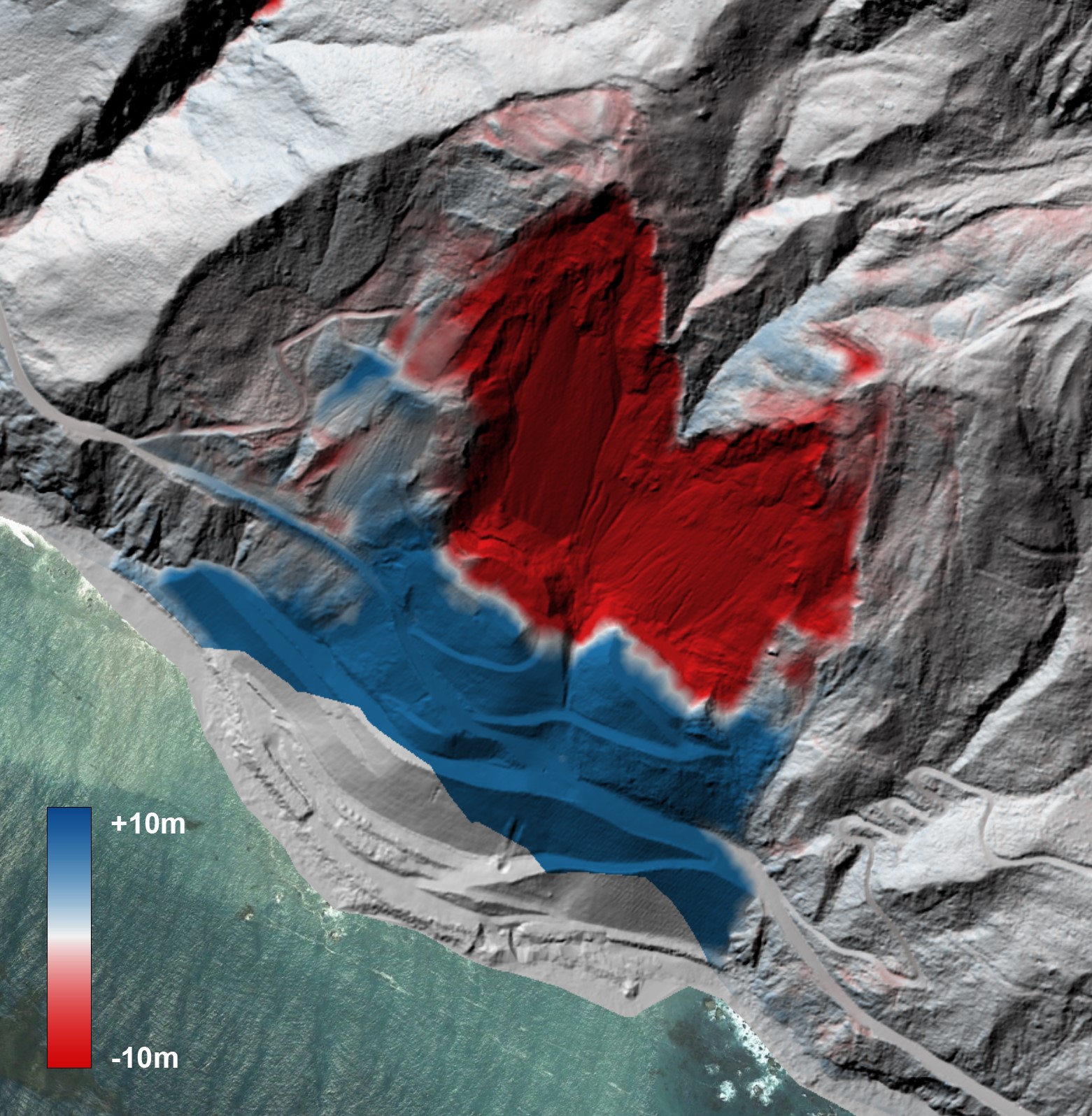OpenTopography Receives $4 Million to Support AI-Ready Access to Topographic Data for Research and Education
Story by:
Published Date
Article Content
The U.S. National Science Foundation (NSF) has renewed funding for OpenTopography, a science gateway that advances understanding of the Earth’s surface, vegetation and built environment. OpenTopography is a comprehensive platform for open access to high-resolution (one meter pixel resolution or better) and global topographic data that is utilized by an international community of researchers, educators, government agencies, industry and hobbyists. It is operated by the San Diego Supercomputer Center (SDSC) at the University of California San Diego; EarthScope Consortium, a non-profit university-governed consortium facilitating geoscience research and education; and Arizona State University’s (ASU) School of Earth and Space Exploration (SESE).
The award, Collaborative Research: Sustained Resources: OpenTopography - An AI-ready Cyberinfrastructure Facility for Advancing Our Understanding of a Changing Earth, provides $4.18 million over four years for the next generation of the project. It is jointly funded by the Geoinformatics program in NSF’s Division of Earth Sciences and the National Discovery Cloud for Climate (NDC-C) initiative of NSF. NDC-C is a crosscutting initiative that focuses on innovative cyberinfrastructure development including support for other NSF initiatives like the National Artificial Intelligence Research Resource (NAIRR).
This next phase of the OpenTopography project is informed by NAIRR Task Force’s implementation plan for an Artificial Intelligence (AI) cyberinfrastructure and the AI-readiness matrix developed by the White House Office of Science and Technology Policy (OSTP) Subcommittee on Open Science. The new award will support expanding pathways for efficient machine-readable data access, ensuring availability of detailed machine readable metadata, and promoting trustworthiness and reproducibility with automated detailed provenance information and shareable workflows.
“A key aspect in harnessing the power of artificial intelligence and machine learning in Earth sciences is ensuring that data facilities make their data AI-ready for emerging use cases,” said Viswanath Nandigam, the project’s principal investigator (PI) and director for the Advanced Cyberinfrastructure Development Lab within the SDSC CICORE Division. “AI-ready data are essential for advancing transformative AI research, as it provides more accurate and trustworthy insights to address complex Earth science challenges with greater precision.”
According to Christopher Crosby, co-PI at the EarthScope Consortium, OpenTopography integrates tools and data for easy processing and visualization of topographic data. “These tools promote equity by eliminating the need for specialized software, technical knowledge or compute resources. The most vulnerable populations are first to be impacted by the climate crisis, and open access to topographic data increases resiliency in communities that lack resources to confront natural hazards,” Crosby said.
The new award will also enable the development of on-demand topographic data processing capabilities over larger spatial scales and longer time spans. Advances in AI and machine learning tools facilitate mapping of geological features, thereby broadening use of OpenTopography across Earth science domains and in education.
“Mapping topographic and geologic features like landslides, alluvial fans and fault scarps requires geologic expertise and is time intensive. Machine learning applied to topography data offers a promising avenue to expedite these repetitive mapping tasks while still leveraging the expertise of geologists,” said Professor Chelsea Scott, co-PI at ASU. “The proposed ML tools will lower the computational and technical requirements for running machine learning analyses on topographic data.”
Open access to topographic data and knowledge enabled by OpenTopography empowers diverse users to address educational, commercial, personal and exploratory interests. The new award also broadens OpenTopography’s audience through the development of an entry-level undergraduate educational curriculum in partnership with two-year community college faculty.
ASU Co-PI and Professor Ramon Arrowsmith highlighted OpenTopography’s broad access which enables diverse educational and research applications and showcases OpenTopography's significant impact. “Tens of thousands of users from more than 700 higher education institutions — including research intensive, baccalaureate and master's institutions — have accessed OpenTopography data. The platform's advanced cyberinfrastructure provides users from all types of institutions — including nearly 100 community colleges — with access to high-performance computing resources.”
Since its founding in 2009, OpenTopography has enabled more than 852 peer-reviewed publications, 109 M.S. and Ph.D. theses, 24 book sections, 42 reports as well as numerous technical reports and other publications from government agencies and the commercial-sector. Its impact spans disciplines across the Earth and natural sciences, remote sensing, computer science, and geographic information science. OpenTopography received the Open Science Recognition Prize from the American Geophysical Union in 2023 for outstanding work and global impact in advancing open science related to Earth and space science.
Funding for this work is supported by the NSF (award nos. 2410799, 2410800 and 2410801).
Learn more about research and education at UC San Diego in: Artificial Intelligence

Share This:
You May Also Like
Stay in the Know
Keep up with all the latest from UC San Diego. Subscribe to the newsletter today.




